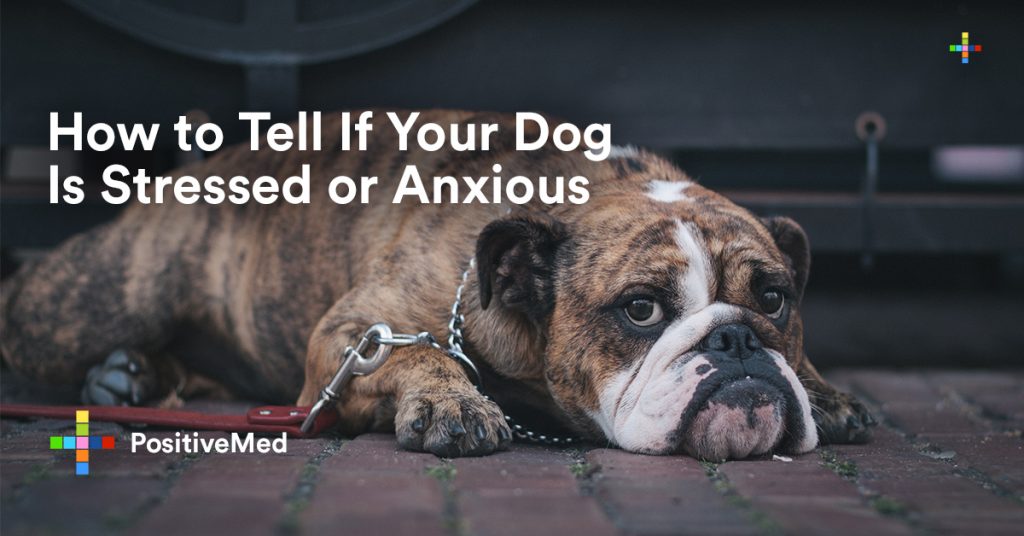If you are a dog owner, you will definitely agree that your pet isn’t shy to express its emotions. Just like in humans, personality is a major determining factor in how dogs struggle to handle stress. There are some aggressive breeds that are more likely to express their stress on you or your home. Breeds that are very shy or nervous may fail to express their stress and appear physically in poor health. Let’s have a look at how you can tell if your dog is stressed and what you can do to help her get by.

Constantly Yawning
It is common for all dogs to yawn especially when they are tired. Yawning many not be an expression of stress unless it is constant and combined with other behaviors like pinned ears or avoidance.
Lips and Nose Licking
Dogs were created to constantly keep licking things, but how can this signal that she is stressed? If your dog repeatedly licks its nose or lips accompanied by other behaviors like avoidance, excessive barking, or sneezing, he may be stressed.
Avoidance
There are several instances your dog may exhibit avoidance. It can be avoiding people or other dogs. Some of the ways your dogs may express feeling uncomfortable include avoiding direct eye contact and turning away. It is very crucial to keep in mind that if your dog is showing avoidance, it is a clear way to express aggression and it is good to respect the message being conveyed.
Panting
It is common for a dog to pant in an attempt to cool itself when the weather is hot or after exercising. However, if your dog is panting without an apparent reason and expresses other behavioral changes, it can signal she is stressed. Caution should be taken if your dog stops panting and closes his mouth. It can be a sign that his stress has escalated and is preparing to bite.
Pinned-Back Ears
All dog breeds have different types of ears. Some are droopy, hang low, or stand upright at attention. But the majority of dogs usually draw their ears backward and low when they are stressed. This is a clear signal that something is amiss.
Related Link: Safe Ways to Protect Pets From Fleas and Ticks
Excessive Shedding
Nearly every dog breed tends to shed. However, if your dog is stressed, you may notice a lot of hair coming off. This is commonly observed in your veterinarian’s office when petting your dog in an examination room where the hair falls on the floor or covers your hands.
Sniffing Excessively
In a situation where your dog ignores you or commands and starts sniffing around, it should come to your attention that your furry friend is uncomfortable and stressed. This is commonly witnessed in certain times like at the dog park or obedience class. You should look for better ways to narrow down the cause.
Accidents
Have you ever left your dog alone only to come back and your house is in a mess? Having accidents inside your house is one of the best sign that your dog is stressed. Some dogs become stressed when they are left lonely in the house. Despite being house-trained, a good number will backslide in their training. Some of the ways to make your dog feel more secure when you are out include crate training or confine him to a closed-off location.
Constant Barking
Most dogs will bark or howl in an attempt to seek your attention. However, if your dog constantly barks inside or outside your house, it may be a sign of anxiety. Find out the pattern to barking to figure out the source of anxiety. It may be happening when you go away or when strangers come to your home.
Sickness
There are some dogs that express signs of stress through physical symptoms. Diarrhea, vomiting, loss of appetite, skin allergies can all be symptoms of stress. These physical signs should be your prime suspect that your dog is stressed if they don’t have an obvious cause.
Assisting Your Dog Cope with Stress
Once you recognize your dog is stressed, finding ways to help him deal with his anxiety should be your next move. Here are some ways to help your dog cope with stress:
- Observe routine: Just like in children, keeping a routine for your dog is very important. They are less likely to get stressed when they know their routine.
- Avoid stressful occasions: You should recognize and avoid the situations when your dog feels uncomfortable. Does he like crowded places?
- Exercise regularly: Working out your dog can be a great way to relieve stress. Make the exercises fun and enjoyable.
- Express love: There are many ways you can express love to your furry friend. Spending more time together with your dog can make your dog feel comfortable and stress-free.
- Uphold rules: Always ensure that your dog observes all the rules you have set. Dogs are usually less stressed when they clearly understand what is expected of them.






